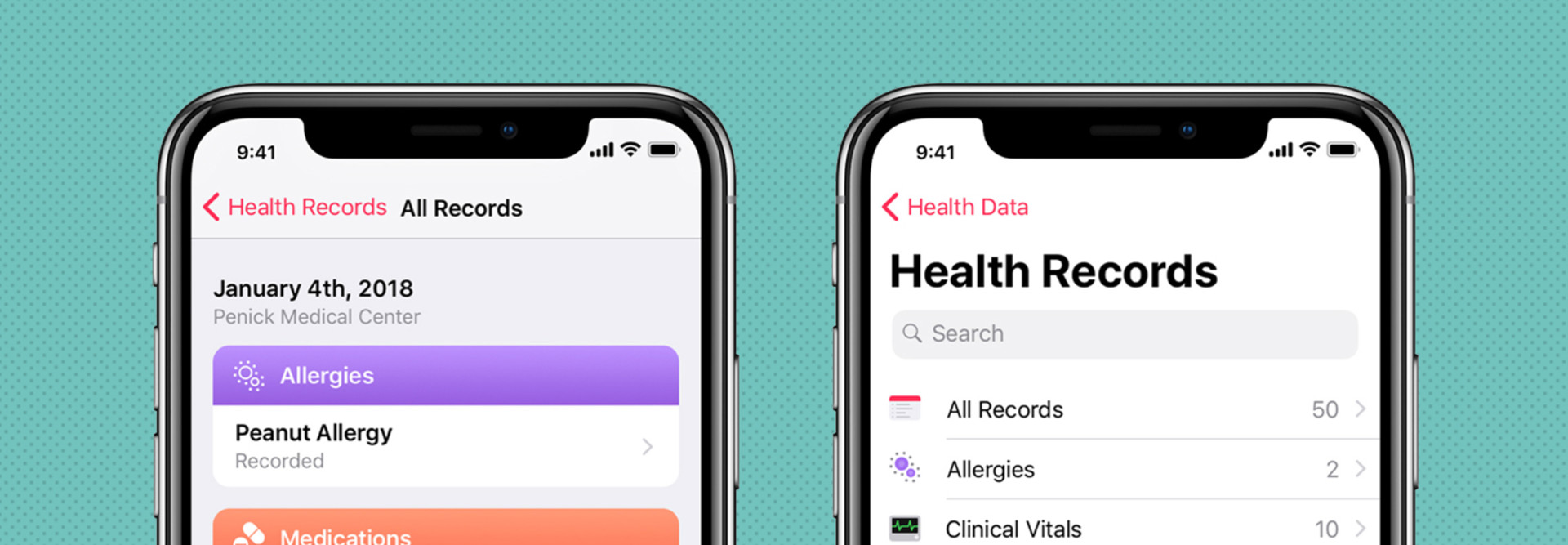Apple Health Technology Brings Electronic Health Records to iPhone Users
While healthcare portals have greatly improved patients' engagement with their own healthcare and records, accessing information from multiple providers isn't exactly a walk in the park. A new offering by Apple aims to change that, however, by placing all health records right into the hands of patients.
The tech giant released its iOS 11.3 beta version on Jan. 24 and announced that the update will allow users to view electronic health records from various providers in conjunction with data from the Health app directly on their iPhones.
"The updated Health Records section within the Health app brings together hospitals, clinics and the existing Health app to make it easy for consumers to see their available medical data from multiple providers whenever they choose," Apple writes in a statement.
The feature will launch with data from 12 U.S. hospitals, including Ochsner Health System in Louisiana, Pennsylvania-based Geisinger Health System, Cedars-Sinai in Los Angeles and Baltimore's Johns Hopkins Medicine.
"Streamlining information sharing between patients and their caregivers can go a long way towards making the patient experience a positive one," says Stephanie Reel, CIO at Johns Hopkins Medicine, in the Apple statement. "This is why we are excited about working with Apple to make accessing secure medical records from an iPhone as simple for a patient as checking email."
These organizations will offer the capability to their patients and more organizations are expected to connect with the Health app in coming months. Apple based the Health Records section of the Health app on the HL7 FHIR (Fast Healthcare Interoperability Resources) specification.
"Putting the patient at the center of their care by enabling them to direct and control their own health records has been a focus for us at Cedars-Sinai for some time. We are thrilled to see Apple taking the lead in this space by enabling access for consumers to their medical information on their iPhones," says Darren Dworkin, CIO at Cedars-Sinai, in the Apple statement. "Apple is uniquely positioned to help scale adoption because they have both a secure and trusted platform and have adopted the latest industry open standards at a time when the industry is well positioned to respond."
Information available in the app touches on allergies, medications, immunizations and lab results, among others, and is organized in a consumer-friendly timeline. The data is encrypted and protected unless the user specifies otherwise.
"Apple doesn't see the data unless the consumer chooses to share it," Apple Chief Operating Officer Jeff Williams tells CNBC.
SIGN UP: Get more news from the HealthTech newsletter in your inbox every two weeks
Apple Looks to Make Health Management Consumer Friendly
The new feature is another move in Apple's massive push into healthcare. The company unveiled capabilities in the last year that opened the Apple Watch to health research pathways. It also added monitoring capabilities to the iPhone in order to make it a health hub for consumers.
Moreover, late last year, the tech giant unleashed new features for its Apple Watch that would allow it to more accurately track fitness, a capability it's researching alongside Stanford Medicine.
"Our goal is to help consumers live a better day. We've worked closely with the health community to create an experience everyone has wanted for years - to view medical records easily and securely right on your iPhone," says Williams in the Jan. 24 statement. "By empowering customers to see their overall health, we hope to help consumers better understand their health and help them lead healthier lives."









